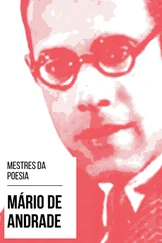Tony Bellotto - Rio Noir
Здесь есть возможность читать онлайн «Tony Bellotto - Rio Noir» весь текст электронной книги совершенно бесплатно (целиком полную версию без сокращений). В некоторых случаях можно слушать аудио, скачать через торрент в формате fb2 и присутствует краткое содержание. Город: New York, Год выпуска: 2016, ISBN: 2016, Издательство: Akashic Books, Жанр: Детектив, на английском языке. Описание произведения, (предисловие) а так же отзывы посетителей доступны на портале библиотеки ЛибКат.
- Название:Rio Noir
- Автор:
- Издательство:Akashic Books
- Жанр:
- Год:2016
- Город:New York
- ISBN:978-1-61775-312-1
- Рейтинг книги:4 / 5. Голосов: 1
-
Избранное:Добавить в избранное
- Отзывы:
-
Ваша оценка:
- 80
- 1
- 2
- 3
- 4
- 5
Rio Noir: краткое содержание, описание и аннотация
Предлагаем к чтению аннотацию, описание, краткое содержание или предисловие (зависит от того, что написал сам автор книги «Rio Noir»). Если вы не нашли необходимую информацию о книге — напишите в комментариях, мы постараемся отыскать её.
, the Akashic Noir Series delves for the first time into South America.
Rio Noir — читать онлайн бесплатно полную книгу (весь текст) целиком
Ниже представлен текст книги, разбитый по страницам. Система сохранения места последней прочитанной страницы, позволяет с удобством читать онлайн бесплатно книгу «Rio Noir», без необходимости каждый раз заново искать на чём Вы остановились. Поставьте закладку, и сможете в любой момент перейти на страницу, на которой закончили чтение.
Интервал:
Закладка:
“This time you took a long look at the guy, it wasn’t as rushed as the first time,” I said.
“I didn’t feel any fear, you understand? The first night I was a little frightened, but not this time. He had a serene expression, calm. He didn’t look like a criminal. He seemed to have something to tell me but he didn’t say anything.”
“Did it enter your mind that he might be interested in you?”
“Of course. But then why didn’t he come closer, speak to me? I turned my back and went home. And the same thing happened again.”
“You opened the window and he was on the sidewalk.”
“Yes. Leaning against the same lamppost, with the same demeanor, the same expression.”
“Did you see when he left?”
“No. As long as I stayed at the window he remained on the sidewalk, in that same spot.”
“With the newspaper under his arm.”
“Always with the newspaper under his arm. I closed the curtains and when I went back to the window, later, I didn’t see anyone on the sidewalk.”
“Let me see if I can guess,” Fats said, pouring a cup of coffee. “On the third night, everything happened again, the same script: he followed you, you stared at each other, afterward he stood on the sidewalk contemplating you.”
“I don’t know if contemplating is the right word. He was looking at me.”
“No, my dear, he didn’t look at you. There’s a big difference between looking and contemplating. That guy’s not one for looking at a beautiful woman. He contemplates. He’s the sophisticated type. Sick, maybe, but who isn’t?”
She laughed for the first time. She had a lovely smile. “You’re kind of crazy yourself, aren’t you?”
“Could be. But I’ve got that guy’s number. I know what he’s like.”
“I don’t think so,” she said with a touch of irony. “I haven’t told you everything yet. He continued to follow me for several nights. More than once I felt like going up to him and just asking what he wanted from me.”
“And why didn’t you?”
She took a deep breath. Then she said in a soft voice, almost a whisper: “Because I was enjoying it.”
Fats and I looked at the woman sitting before us. I should say, rather, not that we looked but that we contemplated the woman.
“I was afraid of what might happen if I went up to him. I don’t know, I thought he might get scared and run away.”
She looked like she was about to cry. Marina straightened her body, sat up erect in the chair, and held back the tears.
“One day, at the library, a girlfriend showed me a book. By a French writer, Roland Barthes. You surely don’t know him, he never wrote a crime novel,” she said with a small smile.
I chose not to respond.
“I took the book home. It was a book of fragments, notes about things relating to love. And there was a very lovely story in it, about a mandarin who falls in love with a courtesan. The mandarin declares his love and the courtesan tells him: I will be yours if you wait for me a hundred evenings in my garden, beneath my window . For ninety-eight evenings he waits for her, in the garden. On the ninety-ninth evening, when she is ready to give herself to him, he leaves and never returns.”
“Dirty trick,” says Fats.
“I think I will accept a beer.”
“Coming up,” I said, getting two. I gave one to Fats. I didn’t want to drink, not just yet.
“I copied the story of the mandarin from the book. I copied it on a sheet of paper, put it in an envelope, and one night when the man was following me, I dropped the envelope on purpose. And hoped he had seen it.”
“You dropped the envelope the way a woman in love drops a handkerchief,” Fats said, and it didn’t strike me as a provocation.
“I went on walking, following the nightly ritual. I went up, waited a bit inside, opened the window, and saw him on the sidewalk looking at me as always. Except that this time there was a small difference, a new detail. He took the envelope from the pouch and held it up, as if to say: Here it is, I got it .” She drank the beer, slowly. Then she placed the glass on the table and said in a firm voice, “It was the last time I saw him.”
I got up and went to the window. There outside, people were moving hurriedly, car horns were blowing, a workman was trying to control a jackhammer. He was small and thin; they shouldn’t have given a guy like that a jackhammer, I thought.
It wasn’t the only odd thing in the city. Rio is an unusual place, full of surprises, and downtown is the best example of that. To start with, downtown isn’t in the center of the city, it’s at one end, along the oceanfront. If it were truly central it would be right in the middle, not on the edge of the beach.
“Do you have any idea where he waited for you to leave the library?” I asked, returning to my chair.
“He always waited for me at a sidewalk table, at Amarelinho. Every afternoon when I would leave the library, there he was. I would walk down the steps and head slowly toward home.”
“Slower each time.”
“That’s true, slower each time.”
She stared at me. The story she had to tell had been told and Marina awaited my reaction.
I lowered my head and shuffled some paper on my desk. Bills: lights, rent on the office, condo fees.
“All right. I’ll find that nutcase for you.”
After she left I didn’t stay in the office for long. I made some phone calls, saw a client, and around four o’clock closed down. I decided to focus on Marina’s case. She was paying well — Fats set the price this time. And it was hefty.
“Nothing like mixing work and pleasure,” he said as we sat at a sidewalk table at the Amarelinho, across from the National Library.
I thought that was where we should begin. Not that we expected to find the guy in the most obvious place. We knew he wouldn’t be at the Amarelinho. But Fats thought that, before anything else, we should try to better understand, or at least speculate about, what he was up to.
“We have to put ourselves in his position, right, André? It was from here that he watched Marina every day. Remember the lesson of a master, Chesterton’s Father Brown: it’s necessary to put oneself in the place of the criminal, it’s necessary to think like him to predict what he will do next.”
“The guy’s not a criminal. It’s no crime to follow a beautiful woman in the street.”
“He did more than that. The scoundrel broke the heart of a ravishing woman. And I should add: a ravishing married woman.”
“Pay attention, Fats, we’re at the Amarelinho, the way you wanted, and we’ve just ordered a fourth round of beers. Is that enough to put ourselves in the place of the guy or do we need to get completely plastered first?”
“It wouldn’t be a bad idea. But it won’t be necessary, since I know why he stayed here.”
“So talk.”
“The guy’s a professional observer.”
“Huh?”
“Just what I said. Remember that story by Poe, ‘The Man of the Crowd’? The guy in the story, the narrator, was methodical. He would sit in a café in London looking out at the street packed with people. And he cataloged each type: merchants, lawyers, public servants, prostitutes, pickpockets, noblemen, and loan sharks; he would classify everyone. Our man is like that too, he’s no amateur. He has a method. And like Poe’s character, he starts by carefully hiding his observation point. A café in downtown London, a table at a bar in downtown Rio. See the parallel?”
“Go on.”
“From here, maybe from this very table where we’re sitting, he could observe at will, without really being seen. People of every kind pass through this square; Cinelândia is a kaleidoscope of humanity, if you’ll permit me a poetic image. Tourists, beggars, politicians, artists, con men, professors, students, drunks of every kind, and of course beautiful women.”
Читать дальшеИнтервал:
Закладка:
Похожие книги на «Rio Noir»
Представляем Вашему вниманию похожие книги на «Rio Noir» списком для выбора. Мы отобрали схожую по названию и смыслу литературу в надежде предоставить читателям больше вариантов отыскать новые, интересные, ещё непрочитанные произведения.
Обсуждение, отзывы о книге «Rio Noir» и просто собственные мнения читателей. Оставьте ваши комментарии, напишите, что Вы думаете о произведении, его смысле или главных героях. Укажите что конкретно понравилось, а что нет, и почему Вы так считаете.












